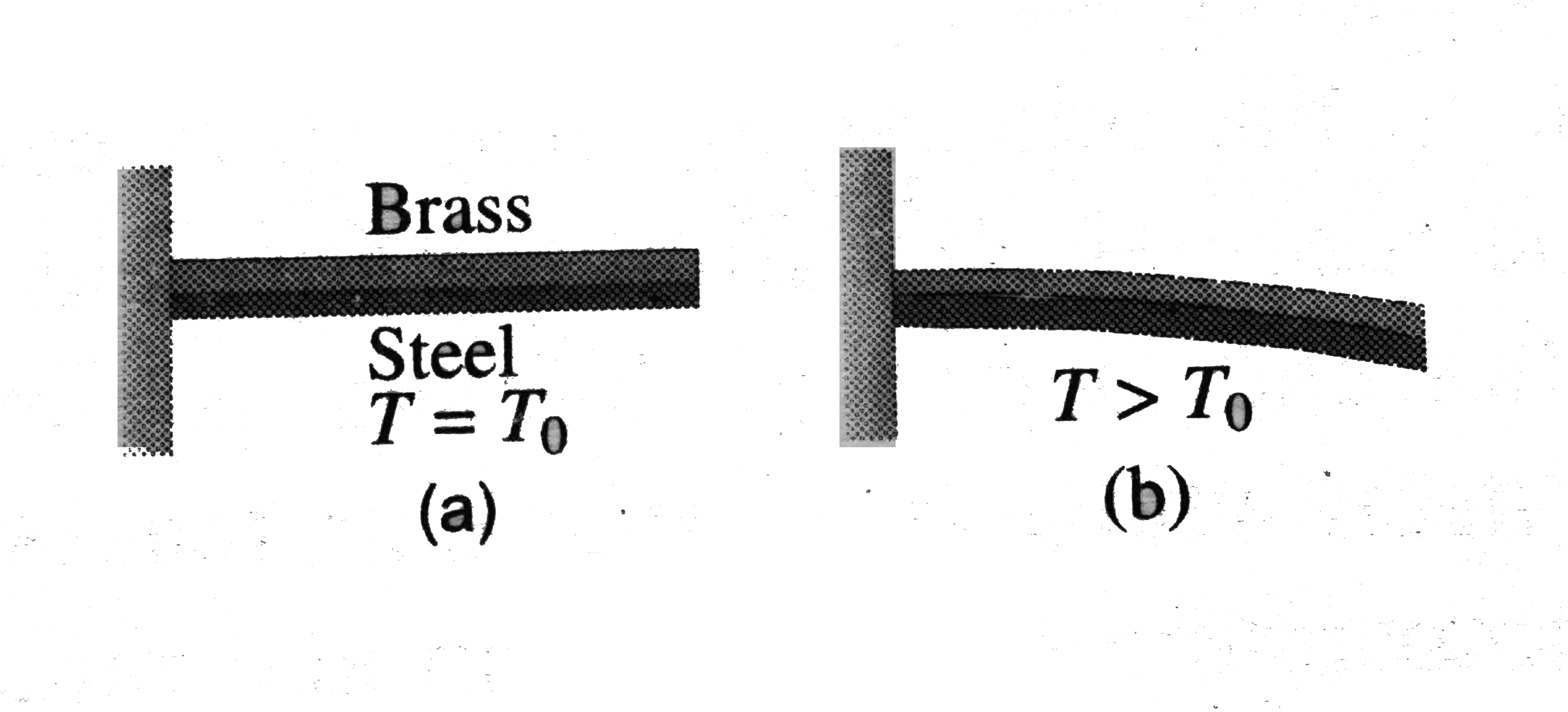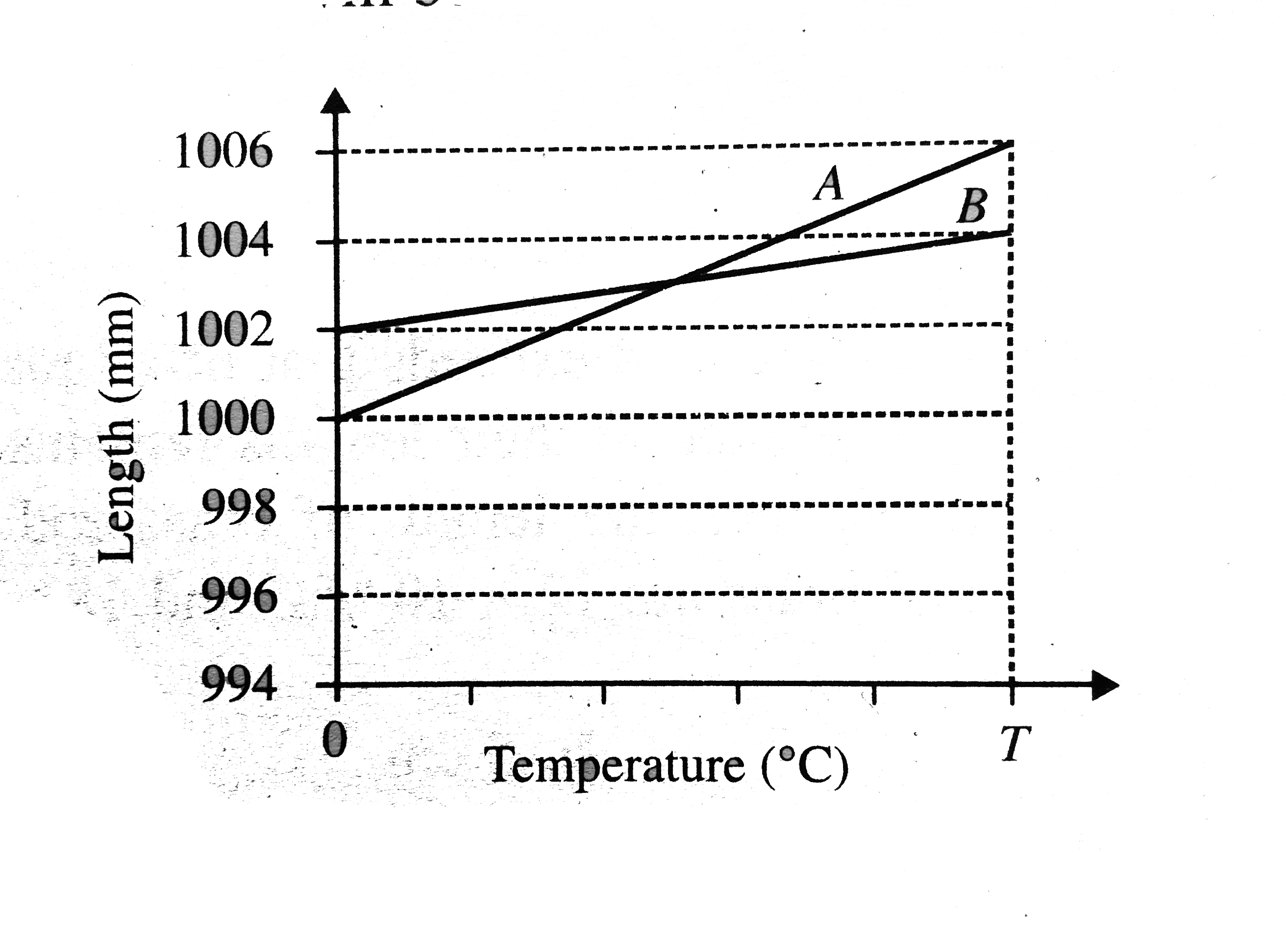If the length of a body is measured in centimeters instead of meters, the coefficient of linear expansion
increases
decreases
remains same
decreases to 1/100 of the original value
The correct Answer is:C
To solve the question regarding the effect of measuring the length of a body in centimeters instead of meters on the coefficient of linear expansion, we can follow these steps:
1. Understanding Coefficient of Linear Expansion:
The coefficient of linear expansion (α) is defined as the fractional change in length per degree change in temperature. It is a material property and does not depend on the units used for measuring length.
2. Measurement Units:
When measuring length, we can use different units such as meters or centimeters. For example, if a rod has a length of 75 cm, it can also be expressed as 0.75 m. The numerical value of the length changes with the unit, but the physical property (length) remains the same.
3. Effect on Coefficient of Linear Expansion:
Since the coefficient of linear expansion is a ratio (change in length/original length), changing the unit of measurement does not affect the value of α. Whether we express the length in centimeters or meters, the ratio remains unchanged.
4. Conclusion:
Therefore, the coefficient of linear expansion remains the same regardless of whether the length is measured in centimeters or meters.
5. Final Answer:
The correct option is that the coefficient of linear expansion remains the same.
The coefficient of linear expansion (α) is defined as the fractional change in length per degree change in temperature. It is a material property and does not depend on the units used for measuring length.
When measuring length, we can use different units such as meters or centimeters. For example, if a rod has a length of 75 cm, it can also be expressed as 0.75 m. The numerical value of the length changes with the unit, but the physical property (length) remains the same.
Since the coefficient of linear expansion is a ratio (change in length/original length), changing the unit of measurement does not affect the value of α. Whether we express the length in centimeters or meters, the ratio remains unchanged.
Therefore, the coefficient of linear expansion remains the same regardless of whether the length is measured in centimeters or meters.
The correct option is that the coefficient of linear expansion remains the same.
Similar Questions
Define the coefficient of linear expansion.
View SolutionUnit of coefficient of linear expansion
View SolutionDefine the Linear expansion.
View SolutionA brass scale is graduated at 10∘C. What is the true length of a zinc rod which measures 60.00 cm on this scale at 30∘C?
Coefficient of linear expansion of brass=18×10−6K−1.View SolutionA meter scale calibarated for temperature T is used to measure the length of a steel rod. Length of steel rod measured by metal scale at temperature 2T is L. Length of the rod measured by metal scale at temperature T is [αs:Coefficient of linear expansion of metal scale, αR : Coefficient of linear expansion of steel rod]
View Solution
In figure which strip (brass or steel) has higher coefficient of linear expansion.View SolutionA liquid with coefficient of volume expansion γ is filled in a container of a material having coefficient of linear expansion α . If the liquid overflows on heating, then
View SolutionA liquid with coefficient of volume expansion γ is filled in a container of a material having coefficient of linear expansion α . If the liquid overflows on heating, then
View SolutionIn figure which strip brass or steel have higher coefficient of linear expansion.
 View Solution
View Solution
The variation of length of two metal rods A and B with change in temperature is shown in Fig. the coefficient of linear expansion αA for the metal A and the temperature T will beView Solution

